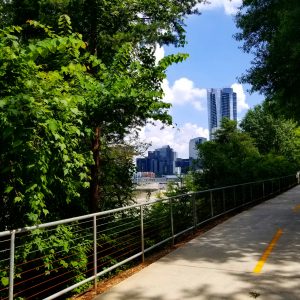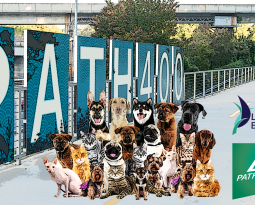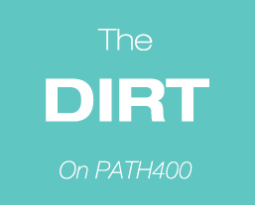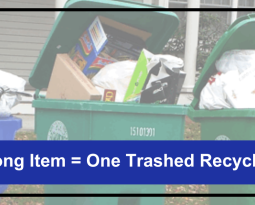City Council Snippets
It’s been an eventful year, and with people at home more than usual, they seem to be paying more attention to the issues that affect their own back yards. Like this year’s unprecedented voter turnout, public participation in weedy issues like stormwater management turned up the heat on some otherwise mundane city governance matters. And while some people weren’t participating in civic debates, they found other ways to divert themselves, spurring novel crises like Atlanta’s recent rash of drag racing incidents. Here are a few of the things we’re following at the Atlanta City Council:
Right of Way Food Trucks and Dining:
20-O-1691, 20-O-1696 – These two ordinances are tangentially related in that they represent a move by the nascent ATLDOT to claim city streets for more active purposes than storing cars, something that car-dominated Atlanta has struggled with as larger cities acknowledge that foot traffic does more to make places enjoyable than parking does. The “dining” ordinance allows adjacent restaurants to claim and possibly pay to operate al fresco seating in on-street parking spaces. One wrinkle that city staffers acknowledge in a zoom call on the topic is that if a parking space patron were to order an alcoholic beverage, a waiter would have to cross over the publicly-owned sidewalk with the open container on their way, running afoul of open container laws. I’m told that the state has granted exceptions to this issue in other municipalities with ROW dining programs in the past, but it remains to be seen if that plan will fly in Georgia’s largest city. The Food-Truck item similarly allows the city DOT to commandeer on street parking spaces to be licensed to food truck operators on a recurring basis.
Environment and Development:
20-O-1498 – “Post-Development Stormwater Management Ordinance” – This very consequential piece of legislation related to how rainfall runoff is returned to the earth finally met passage back in November and went into effect on December 1st. In something of a recurring theme this year, the intersecting issues of development, land use, environmentalism, and social justice turned this nuts-and-bolts policy paper into a more wide-ranging discussion of the disparate effects that city policy has on communities of color. Groups like the Intrenchment Creek Community Stewardship Council have pushed this issue to the fore.

Atlanta’s reputation as a city in a forest is accurate, but without strong protections the lush canopy is in jeopardy as climate change and development threaten it.
“Urban Ecology Framework” – Another hot-button, political football, sometimes simply referred to as the city’s ‘Tree Ordinance’; the Urban Ecology Framework document describes the scenarios in which Atlanta’s famed trees can be removed and what has to be done to replace them. As I’ve written previously, the majority of Atlanta’s trees reside on land zoned as private, single family residences, pushing homeowners up against environmentalists. A numbered paper for the rewrite has yet to surface, but between advocacy groups and their opponents, there’s a major storm brewing here.
Impact Fee Update – Another item coming down the pike yet to emerge as a draft paper, the city’s intended adjustment to the fees that developers pay for their projects’ impact on traffic and other city infrastructure is overdue for a refresher. Per presentations to council and neighborhoods, Atlanta’s fees haven’t been restructured since 1993 and have been outpaced by our growth. Requiring developers to offset the increasing demand for water, sewer, and traffic infrastructure isn’t a new concept. But as the housing affordability crisis continues, exacerbated by the pandemic, many argue that the best solution isn’t to increase levies on homebuilders.
Street Racing:
20-O-1361, 20-O-1653, 20-R-4566 – Atlanta City Council is cracking down on street racing, or as the kids call it “Laying Drag” in a multi-pronged set of ordinances aimed at curtailing the dangerous activity in which multiple bystanders have already lost their lives. The most significant change involves a move to impose penalties not only to drivers, but to those observing, photographing, and blocking off space for the activity, ensuring that everyone participating bears some responsibility. A second ordinance carves street racing out of the city’s recent cash bail reform – a statutory exception for crimes that involve “an element of violence” has been applied, so street racers can no longer be released only on a signature bond. And going the extra mile, an ‘urging resolution’ to the Georgia General Assembly is petitioning the state to allow for civil forfeiture to be applied to street racers vehicles, making the act not only criminal but costly.








